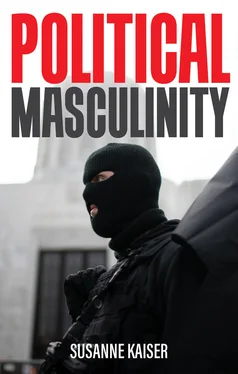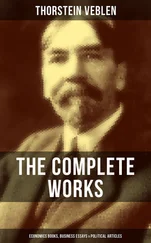Women politicians such as Nancy Pelosi and the former German chancellor Angela Merkel, however, are not the only women who have been the target of verbal, and occasionally physical, attacks. Rather, all women who operate in the public sphere and have had success in (even presumably harmless) ‘masculine domains’ – such as women football commentators or women in ‘male’ film roles, for example – face the same risk. During the 2018 World Cup, every game with a woman announcer was followed by a shitstorm on social media devoted to denigrating the women commentators in question. 5And, however silly this might sound, a great many men regard the masculinity of Ghostbusters as sacrosanct. When the trailer for a female version appeared in 2016, it was ripped apart in YouTube’s comment section as stupid and unworthy – not, for instance, because it’s a trashy ghost story, but rather because the main roles were played by women. The clip was watched more than 46 million times; it was ‘disliked’ more than a million times, and it prompted more than 260,000 largely disparaging or even openly misogynistic comments. 6By way of comparison, the trailer for one of the most successful films of all time, Star Wars: The Rise of Skywalker , from 2019, attracted fewer clicks (44 million), received only 114,000 dislikes, and instigated just 90,000 comments, which are not discriminatory. 7
The reactionary counter-discourse has emerged from a field of tension. On the one hand, male privileges persist today and are deeply and structurally embedded in our society. For centuries, masculinity has been the norm around which everything has been oriented, and beneath which everything is expected to be subordinated. In her book Invisible Women: Exposing Data Bias in a World Designed for Men , Caroline Criado Perez has recently demonstrated how deeply these androcentric structures in fact reach. 8In so many areas of life, women are still disadvantaged, despite the fact that they have long been on supposedly equal footing with men in the eyes of the law. The needs of men remain the standard by which everything is still measured, whether in daily life, at work, in product designs, in medicine or in the public sphere. Regardless of whether we have in mind crash-test dummies, automatic doors, workloads, tools, devices, safety equipment, bulletproof vests, seatbelts, medications, pacemakers or the temperatures in climate-controlled buildings, man is still the measure of all things.
On the other hand, however – and like never before – women and other political minorities in Western societies have been calling into question this norm and the related privileges associated with white, male, hetero-cis domination. Ethically, normatively and discursively, the patriarchy has increasingly come under pressure. The prevailing social consensus is that equal rights are a desirable goal, and this view also sets the tone in the liberal progressive media.
This tension between the factual reality of the patriarchy and its discursive downfall is an essential reason why, in recent years, we have experienced a glut of denigrating and often hateful rhetoric against women. The polemics against equal rights – in the form of men’s forums, comment sections, or on social media – are only a small part of a large movement whose agitations against women and women’s rights can be observed in many social and political spheres. And, as chaotic as the storming of the Capitol Building may have seemed, scenes like this in public space are in fact well orchestrated. From Canada to New Zealand, from Brazil to Poland, there is a well-organized network of misogynistic, extreme right-wing actors who operate globally, as I will show with many examples in this book. Before the proponents of this movement take to the streets, there is first a verbal smear campaign; before women are treated with actual violence in the material world, violence-glorifying content is first shared on the internet. There is an online–offline continuum at work, and it is clear to see. The verbal attacks that trigger hatred towards women do not, however, come from extreme right-wing corners or generally extremist corners alone. Denigrating rhetoric targeting women is far more widespread in our societies: it can be found in the writings of Catholic clergymen, in statements made by the anti-abortion movement, in the verbal loutishness of right-wing populist or conservative politicians, and of course in the misogynistic and violence-glorifying ideology of incels.
Three large movements have thus converged and become interconnected: incels and masculinists; conservatives, right-wing populists and right-wing extremists; and religious hardliners and fundamentalists. They share misogynistic and sexist views; they want to force women back into a subordinate position in the social hierarchy, restore the patriarchy and make the needs and privileges of men dominant once again. For all three groups, feminism represents the enemy, and this is what binds their ideologies together. Why, however, are right-wing factions around the world mobilizing against the specific themes of gender studies, LGBTQ+ rights, and gender roles? What is society’s breeding ground for this?
The process can be understood as a reaction to the deep shocks that have altered male self-perception over the past few decades, and as a fierce defence of masculine privileges and male dominance, which de facto still exist but have been challenged by our value system. In this tension, hegemonial masculinity has been problematized and politicized. 9Trump’s staging of masculinity during the pandemic is just one of many symptoms of a political conflict that is being waged on the field of gender relations. In the name of masculinity, right-wing groups mobilize and engage in politics; calls for the restoration of ‘genuine masculinity’ and the patriarchy fall on fertile ground, from mask deniers to incels. Right-wing populists, masculinists and Christian anti-abortion activists gather under the banner of male dominance in order to mobilize against the so-called ‘gender ideology’. In doing so, they invoke a recurring motif, which plays a central role in the ideas expressed by many of the protagonists of political masculinity: in the relations between the sexes, or so they believe, a natural order would prevail, a natural hierarchy in which women are subordinate to men – if only the social experiments of liberal activists, green activists and gender activists weren’t standing in the way. The modern conception of equality – whether before the law or from an economic perspective – is at odds, they think, with this natural order. Right-wing reactionary ‘thinkers’ such as Jordan Peterson or Jack Donovan lend to this authoritarian movement the pseudo-scientific tools for its ideology of hegemonic, natural masculinity.
This new discourse of masculinity is reflected in the rise of right-wing populist parties and in the rise of strongmen such as Donald Trump and Jair Bolsonaro. Like a common thread, misogynistic agitation pervades the statements and programmes of populist and authoritarian parties and politicians. Hardly anything unites the recent authoritarian efforts as strongly as the fight against ‘gender mania’, against the relativization of masculine power, which is felt as a degradation. The new discourse of masculinity is closely connected with the political convulsions over the past few years. The tension that exists between real and ideal gender relations has given rise to something which the sociologist and gender-studies researcher Michael Kimmel has called ‘aggrieved entitlement’. Men with a misogynistic worldview, according to Kimmel, believe that they are entitled to a wife and to a traditional masculine role (that is, a dominant role) within the family and within society at large. They derive this presumed entitlement from ‘tradition’, and whether this tradition is factual or imaginary is irrelevant to them. From this aggrieved entitlement, politicians such as Trump have formed a political programme of male sovereignty. They harness the frustration, disappointment and rage of those who are convinced that they’ve been left behind, and lure them with the promise of restoring their entitled privileges. This promise of restoration, in fact, is the method of choice among right-wing populist politicians: ‘Make masculinity great again.’
Читать дальше












